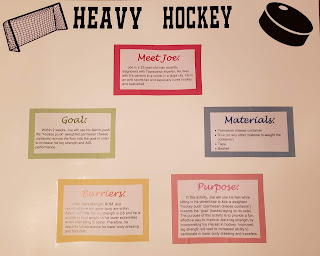My Beautiful Broken Brain
I chose this documentary because it had really good reviews and I wanted an inside look of what it is like to survive a cerebrovascular accident (CVA), or "stroke." This documentary was started by Lotje, a 34-year old woman who experienced a stroke while home alone, as a way to document her recovery journey. Her friends described her as a very social, articulate person who loved to read and write before her stroke. However, post-stroke, Lotje had a lot of speech, reading, and writing difficulties. The documentary shows all of the frustrations and challenges Lotje encounters as she tries to come to terms with who she is now that she cannot do the activities she used to love. I thought this movie was fascinating and very philosophical. They use visual effects throughout the movie to give the audience a sense of what Lotje is seeing. For instance, she describes the vision on her right side like a "heightened sense of reality" with all the colors and sounds intensif
